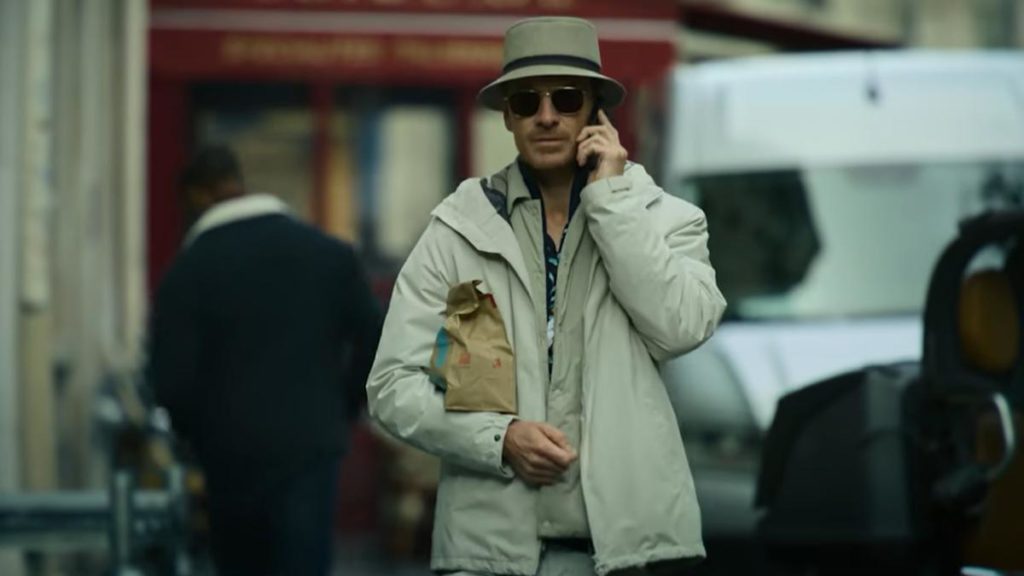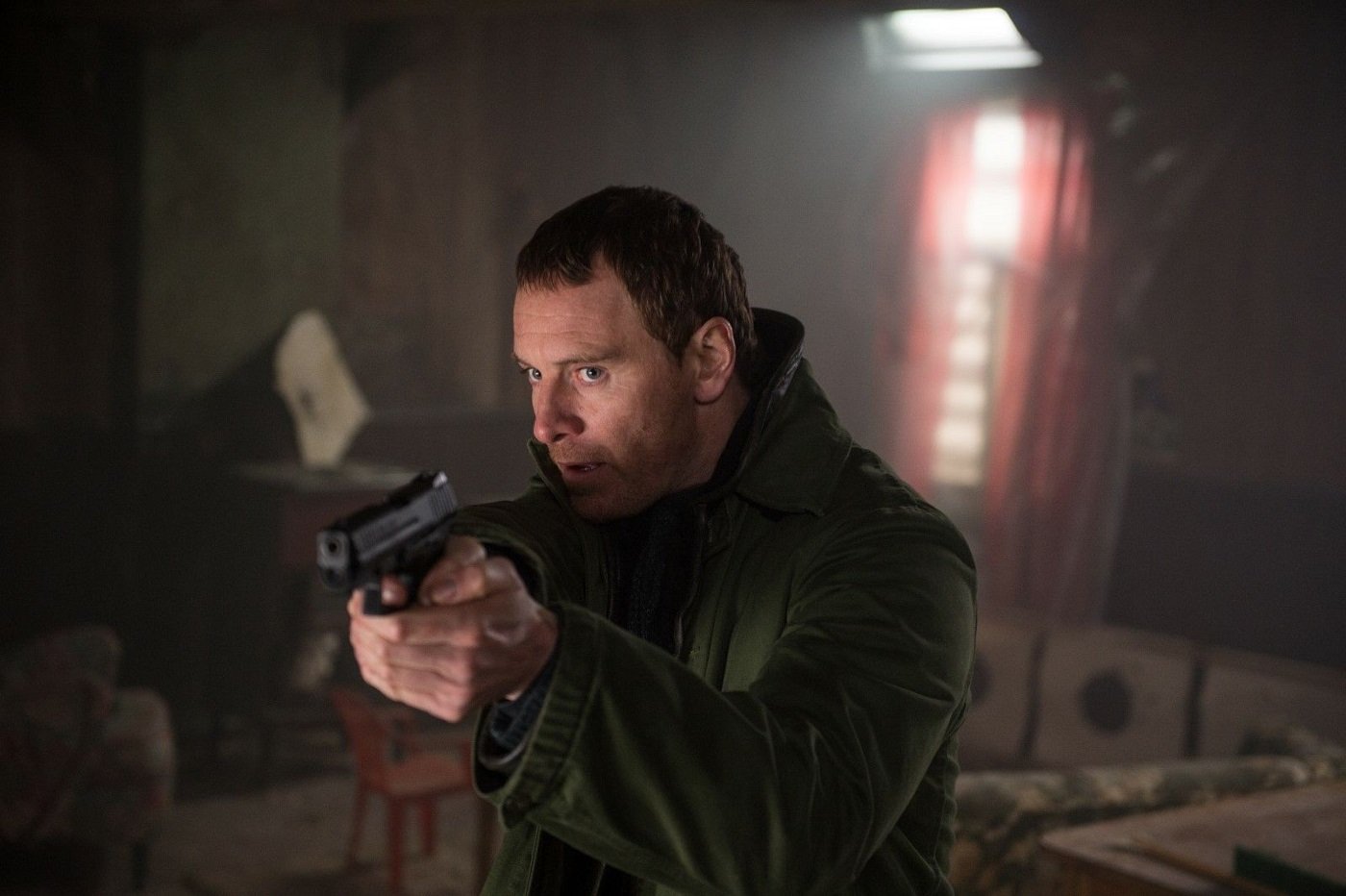
Whilst the rolling montage of deaths and planned deaths running over the opening credits of The Killer (2023) might promise a piece of ultraviolence to follow, this is instead an often quiet – unbearably quiet – and introspective film, which is utterly carried by Michael Fassbender’s magnetic, if ice-cold performance. As Fassbender’s many-named but ultimately nameless character insists, early, and throughout his voiceover (a stylistic choice which could have become grating, in any other hands), most of the job of hitman involves waiting. Waiting, alone, in the dark, for the moment to arrive. It smacks of Mike in Breaking Bad, pointing out that most of his job involves driving around and digging holes in the earth, whether to retrieve cash and firearms or – for other purposes. Perhaps it’s high time we consider such occupations as being dominated by the mundane, or at least balanced by the mundane. It makes sense, after all, and allows us time to get to know people.
We first focus in on our Killer holed up in a Paris apartment. He’s waiting for the arrival of a target to a grand suite directly opposite. But he must wait, and he waits for days: his time unfolds, aimless but regimented, dictated to some extent by his fitness watch which parcels up the hours and monitors his heart-rate – information which is pertinent to his job, rather than just background info on his wellbeing. When he isn’t waiting around, or popping out in the most anodyne clothes possible to pick up something to eat (apparently the ‘German tourist’ look practically guarantees being left alone by Parisians), then he’s watching the apartment opposite, his voiceover acting as his sole company. Then, finally, a party of people arrive. The moment is coming: he takes up his weapon and trains his sights on his intended victim, and waits for an opportune moment.
The narrative so far has assured us of the Killer’s monstrous competence, but it should come as no surprise that, in the narrative trajectory we’re actually going to get, something goes wrong. And, just as there are huge rewards for success, there are also punishing consequences for missing your shot. It’s here here we find our first and really only chink in the armour; the higher-ups elect to punish the Killer, but instead attack someone who is close to him, in an unfolding situation which is a surprise to assailants and victim both. Now would be a good time to go to ground, but the Killer knows on a logical footing that he can’t, and also, given he does seem to have some emotional attachment to the person involved (a situation he knows well enough to deplore, even if he can’t help) it prompts him to undertake a mission of his own – to restore balance, and to dole out a meticulously-planned revenge.
Whilst the outline above sounds tried-and-tested, this is a hitman movie like no other, really. Elements are noir-ish, at least in terms of the cynicism and worldview on display. It’s also often cruel, but not to the levels we’ve seen from director David Fincher in previous outings. And yet, it’s often awfully silent, still, character-focused, but with a character who dodges nearly all markers of backstory, right down to his name. In the wrong hands, this could all have felt a little thin, but Fassbender’s unblinking, stony and self-curtailed character is mesmerising; it’s just as well, given Fassbender is on screen for virtually the entire running time. This is an unpleasant person by most measures, with a despicable trade to boot, but one who demands our attention and a queasy sort of audience support; it’s hard not to root for him, this mysterious, calculating man, which again is testament to Fassbender’s performance – including, and let’s address it, the voiceover. These can be divisive, but the film does such interesting things with its rolling monologue: for example, snipping it short where the Killer is surprised suddenly and can no longer ‘speak’; using it for moments of self-deprecation; even giving us a few darkly humorous comments. It’s used for repetition, too, where he repeats mantras or lessons which sometimes work, and sometimes don’t. Clearly Fincher’s experiences of directing films like Gone Girl (2014) have helped to show him what’s possible with this particular stylistic feature. It should elevate elements of the plot, not explain them away or worse, drown them out, and whilst it can take some getting used to, the voiceover in The Killer elevates the film as a whole.
There were a few moments in the first chapter (yes, there are chapters) where I wondered how this could possibly move from such a careful study of inertia into any sort of action; however, once things begin to unfold, they ratchet slowly and carefully, turning the film into a tense and dynamic story which also feels very grounded in its various locations; presumably a hitman has to feel at home anywhere, or look like they do. The film is also very precise about introducing other characters, with a superb supporting cast (Tilda Swinton seems to be in her element, but special mention goes to Kelly O’Malley as Dolores, playing a woman who probably believed – or hoped – she was just peripheral enough to stay safe.)
Moments of extraordinary brutality are to be found here, but its greatest success is in its quiet self-assurance. The Killer nudges us to remind us that cruel and calculating people like these could be anywhere, either hiding or blending back into society. Maybe we’ve been made aware of that before, and maybe we’ve seen similar stories play out, but this is a precise, well-realised and very interesting example of a crime thriller. (Interesting and thorough use of The Smiths, too.)
The Killer (2023) is in cinemas now.
